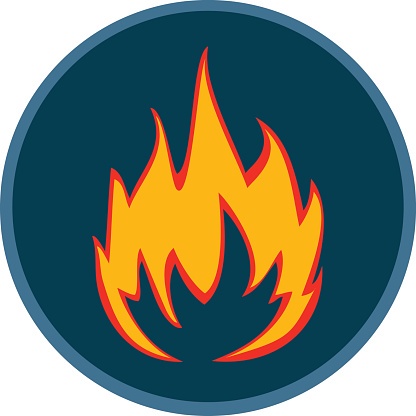Once you hit 65, you’re twice as likely to be killed or injured by fires than the total population, and if you’re 85 and over, you’re four times as likely to die in a fire.
Why are older adults at risk?
Several factors influence whether an older adult is at risk of dying or being seriously injured during a fire. These include limited physical or cognitive abilities, which can lead to decreased senses of hearing, seeing or smelling, and at times, and a diminished sense of pain. Reduced senses can make someone unaware of a small or spreading fire, and a diminished sense of pain can delay treatment for burns or other injuries sustained during a fire.
According to the U.S. Fire Administration, an older adult’s risk for injury or death in a fire dramatically increases if two or more senses are reduced. The agency also notes that older adults are more apt to accidently start a fire than their younger counterparts.
Another factor that can affect reaction time during a fire? Medication. If you’re taking a medication that causes drowsiness or affects your judgment, this can put you at risk. You may also find your judgment affected if you combine certain medications with alcohol.
Fire Safety for Older Adults
Smoking fires: If you smoke, use a large, deep ashtray that doesn’t tip over. Make sure your ashtray is on a sturdy non-flammable surface like a table, and never leave a lit cigarette in an ashtray.
Never smoke in bed or after taking any medication that could make you drowsy. Before you turn in for the night or leave your house, check for any smoldering cigarette butts under couch cushions or on the floor.
Electrical fires: As a homeowner, you likely know the dangers of overloading circuits or using frayed extension or electrical cords. However, there are other less obvious electrical fire dangers in your home. These include older wiring and improper use of electronics.
If your home is more than 50 years old, check its wiring. Signs that your home’s wiring could be aging include fuses that blow repeatedly and using too many extension cords. If you notice any of these, or are concerned about the integrity of your home’s wiring, contact an electrician.
Also, keep these additional safety tips in mind:
- Never plug more than 2 appliances into an outlet at once
- Don’t use any worn or frayed cords; discard them
- Only use extension cords temporarily. If you need additional outlets, speak to an electrician
- Don’t run cords under rugs and don’t hang them using nails
- Don’t use an appliance if it develops an unusual smell, feels warm or makes unusual sounds
Kitchen fires: Cooking accidents are the leading cause of house fires in the United States. To avoid becoming another statistic, never leave cooking food unattended. If you’re using oil to cook, heat it gradually and take extra care when deep frying. If you’re near a stove, make sure you have short or tight-fitting sleeves. Longer, looser sleeves or unclipped ties can be a fire hazard.
If a stove fire does occur, turn off the stove, sprinkle baking soda on the fire to extinguish it and put a lid on the pan. Don’t use water to extinguish a stove fire or try to move any pots or pans on the stove.
Follow the tips above to keep your home and family safe from fires. If you have questions about fire safety, contact your local fire department.










